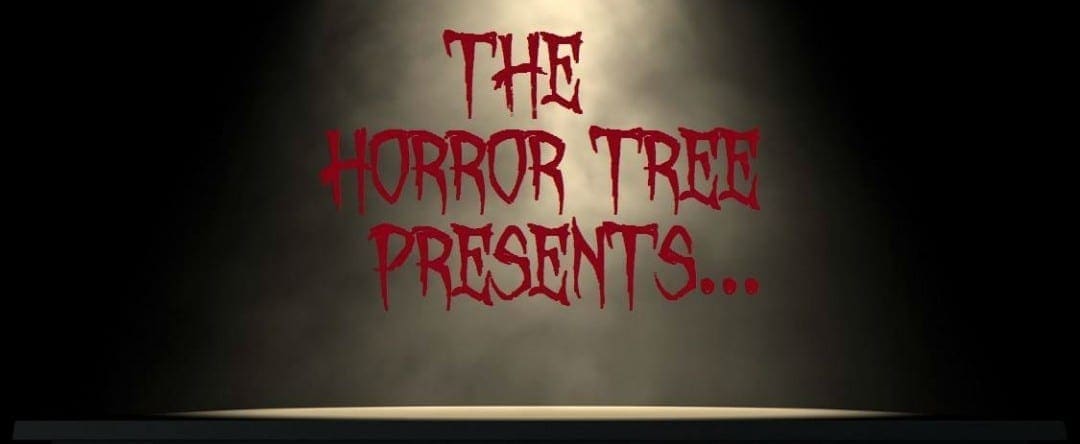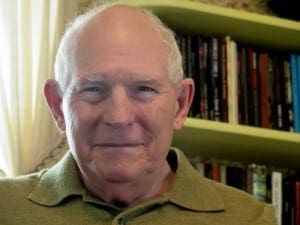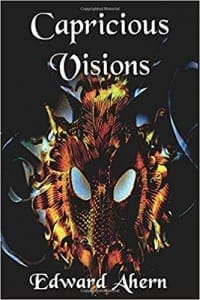The Horror Tree Presents…An Interview with Edward Ahern

 Selene – Welcome to the Horror Tree, and thanks for joining us today. Let’s start with you telling us a bit about yourself.
Selene – Welcome to the Horror Tree, and thanks for joining us today. Let’s start with you telling us a bit about yourself.
Edward – Thanks for the interview. My life’s been wonderfully haphazard: naval officer/diver/bomb disarmer, reporter, intelligence operative/handler, sales/marketing executive, writer, couple advanced degrees, proficiency in three languages. I’ve tried to remain immature as I aged, avoiding the ossified judgements that constrict so many adults. And I give myself permission to change my mind about issues and individuals when warranted.
Selene – From your bio, it appears you started creative writing after retirement. What’s it like, starting a new journey later in life?
Edward – I wrote corporate marketing plans for years, which prepared me for tinkering with the truth in fiction. Lots of drawbacks to starting to write late in life, but one advantage is that I’m not worried about making it a career and can try and craft each story and poem to ring true.
Selene – I notice you write mainly short fiction and poetry. What appeals to you about the shorter form, rather than writing novels?
Edward – Time horizon. At seventy-five I don’t make bold predictions about length of life or lucidity. I do have a published novella, “The Witches’ Bane,” and a novel 40k words in progress, but I’m frequently seduced by a new story or poem idea and amble off to write them.
Selene – Let’s talk about poetry. Poetry is rarer in the speculative fiction community, although there are some great spec-fic poets out there. How does your approach to poetry differ from prose?
Edward – The bulk of my poetry is ‘general’ or perhaps (shudder) ‘literary,’ but I do have a fair number of speculative poems that have gotten published. It’s harder for me to write a good horror poem than to anguish about my wounded psyche. I try and capture the delicious fear contained in Little Orphan Annie- “and the goblins’ll git you if you don’t watch out.” Good horror poetry I think is sensory. I try and make the reader physically uncomfortable and yet enjoy the process.
Selene – You’ve also got a strong background in journalism and have published a few essays. How does writing non-fiction differ from fiction, and which do you like better?
Edward – I really enjoyed my time as a newspaper reporter, and if they’d paid me more I might still be doing it. The two best brought-alongs from my reporting days are a respect for accuracy- which translates well into plot integrity- and the ability to sit down and write regardless of mood or digestion.
Selene – Because this is The Horror Tree, what about the horror genre draws you, as a writer?
Edward – I love scary stories, both reading and writing, but am not impressed by prose sloppy with gore, although I’ve written some of it. There is latent evil under every good, and good horror writing shows me how precarious my hold is on that good. Probably a third of my speculative fiction is horror, another third fairy tale and fable, and the balance fantasy and science fiction.
Selene – What I’ve read of your stories is very character-driven. Why and how do you choose the people you write about, and how do you draw your characters?
Edward – I think a story that resonates with readers lets them into the mind and emotions of characters. I try for troubled, imperfect narrators who reach behind readers’ veneers to touch the sore spots. I try for people who are heroic without being heroes.
Selene – As a horror/speculative writer, there’s one character that always seems to be lurking around the corners of your writing: Death. This may seem like a strange question, but I’ve noticed that a lot of horror seems to be “How Not to Die.” By contrast, your characters seem to be dealing with the inevitability of death in various ways. Do you notice this, as you write?
Edward – That’s a very good question. A fair amount of what I did in the military and in intelligence work involved physical risk, and my recreations of hunting and fishing are premised on something dying. I’ve come relatively close a few times and accept calculated risks. Running away from one fate sometimes just means you’ve let another one in.
Selene – I’d like to talk about fairy tales, now. At least two of your stories are inspired by Russian folk tales. Is there a particular culture or country’s fairy tales you like or that influence you, or do you like stories from many places?
Edward – It’s a smorgasbord. The published stories from other cultures are all folk rather than fairy tales- two Russian, one Norwegian, one Turkish, two Inuit, one Japanese and four Native American. Around thirty years ago the main Bridgeport, CT library had an extensive collection of folk tales and I read through most of the books, photocopied forty or so of the tales, rewrote them, and submitted them for publication. I received two nice rejection letters and put the stories in a box for the next quarter century. I finally wiped off the dust, re-rewrote these eleven pieces and individually submitted them, all accepted. Sadly, over the years the Bridgeport library got rid of the books of folk tales, so I saved a little bit of something now gone.
Selene – You’ve published a book of your own fairy tales, written for your children and grandchildren. How did that come about?
Edward – Our children didn’t breed enough to populate an entire book with protagonists. Only five of the stories in the book feature a grandchild as the hero, the rest are retold folk tales and modern fairy tales. I wanted to give our grandchildren something they could have read to them, and something they could read to their children, which is why I wrote and assembled the stories in The Witch Made Me Do It.
 Selene – The Witch Made Me Do It is described as a book of “modern” fairy tales. How would you say a “modern” tale is different from a “classic” tale, and what’s your approach to writing one?
Selene – The Witch Made Me Do It is described as a book of “modern” fairy tales. How would you say a “modern” tale is different from a “classic” tale, and what’s your approach to writing one?
Edward – Unless it’s satiric, I avoid the classic fairy tale settings, and set the stories and characters in the present, modernizing the evil doers and monsters. There’s some bleed into stories that got published as fantasy but could arguably be called fairy tales. A “modern” fairy tale can address real time issues for children. I’m not sure we do our children a favor by always insisting on the tales we were told when young
Selene – In addition to fairy tales, what are some of your writing influences, and what do you like to read?
Edward – I hate clichés but will use one here. My reading habit is a dog’s breakfast. I love and am infuriated by David Foster Wallace, leisure-read a fair amount of place-focused non-fiction, read about 20k words/week of fiction and poetry for the review board at Bewildering Stories, critique two stories and a few poems a week for writing groups I participate in, and often purpose-read fiction authors whose techniques I’m studying.
Selene – Before you retired, you had a long career in business, and military training before that. Do you ever use your experiences in these fields as writing fodder?
Edward –
All the time. It’s a lot easier to write absorbingly about experiences I’ve had rather than experiences I’m conjecturing. Sensory detail of course, but even more the emotions and conflicts that accompany the events. A story based on my spooky days, “Alten Kameraden” is as viscerally close as I’ll ever get to describing what it was like to be an operative.
Selene – What advice would you give a newer writer, especially one starting writing later in life?
Edward – The first draft sucks. Always. Frequent rejections are a given and can be accepted in stride. Writing isn’t a zero-sum game, we don’t win or lose, we just get better at playing. As both a writer and an editor I can confidently say that acceptance is a matter of editorial taste, especially in poetry. However, if more than five editors turn a piece down, revise it. An older writer, I think, has an easier time finding her voice. Doesn’t make her writing any better, just means it’s consistent.
Selene – What writing projects are you working on now, and what’s next for you?
Edward – The novel in progress is temporarily called The Rule of Chaos. It’s a paranormal thriller set in the U.S. and Iraq. I was 40k words into it and realized that I didn’t like what I was doing. After a year on the shelf I figured out how it should be written and will spend much of the next year rewriting and expanding it to 80k or so words. I write two or three poems and a short story or two a month. I’ve assembled a poetry collection that I’m shopping around now. Hopefully someone will have the bad taste to publish it.
Selene – Thank you for taking the time to answer my questions. Do you have anything else you’d like to talk about here?
Edward – Horror, like humor, doesn’t get the respect it deserves. It seems peculiar that the most intensely emotional writing- horror, humor, romance- gets talked down, as if reluctant to admit to feelings unattached to literary layering.
- About the Author
- Latest Posts
Selene MacLeod is a night operator and sometime writing hobbyist. She holds a BA in Communications from Wilfrid Laurier University and resides in Kitchener, Ontario. Her work has appeared in several horror and crime fiction anthologies, most recently Shotgun Honey, Drag Noir (Fox Spirit Books); and the upcoming Freakshow: Freakishly Fascinating Tales of Mystery and Suspense (Copper Pen Press), and Tragedy Queens (Clash Media).She’s most excited about editing a charity anthology for Nocturnicorn Books called Anthem: A Tribute to Leonard Cohen, due out late 2017.












